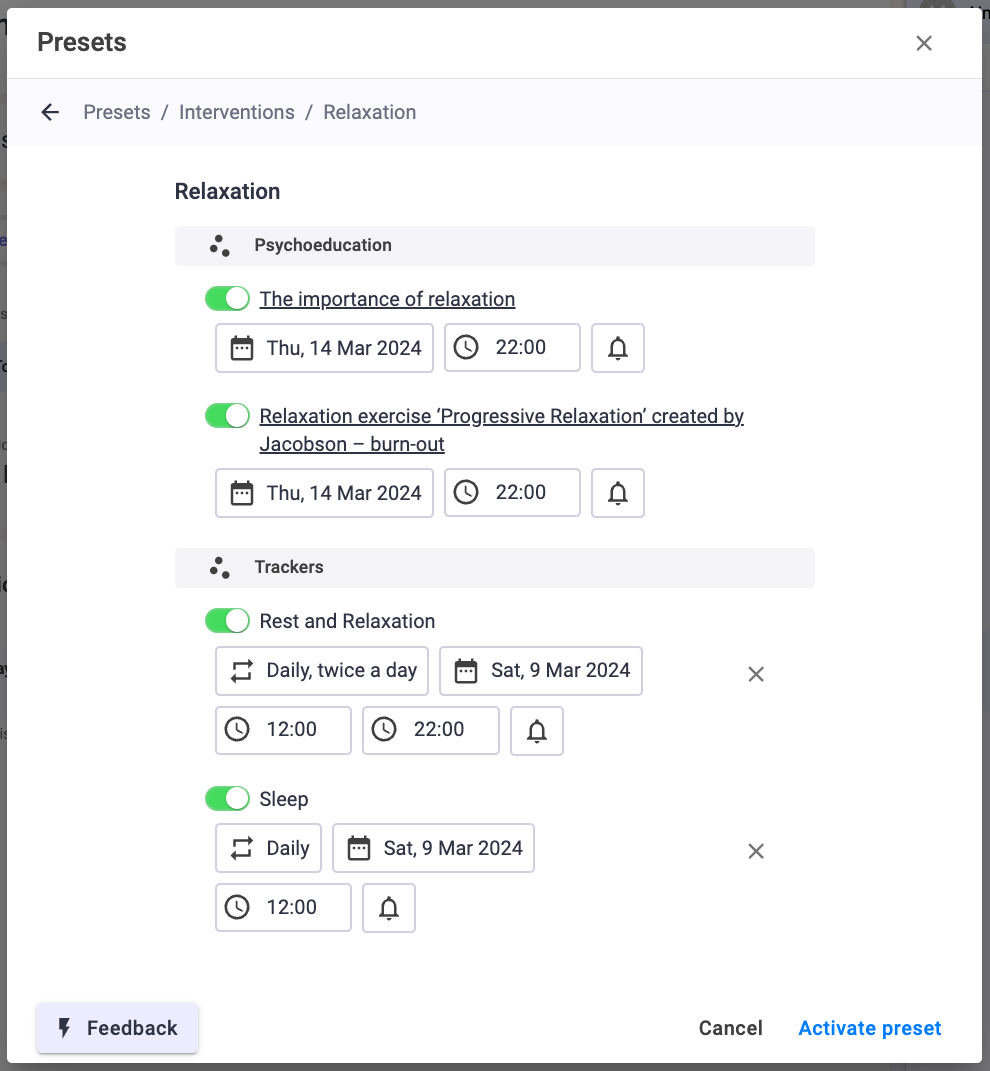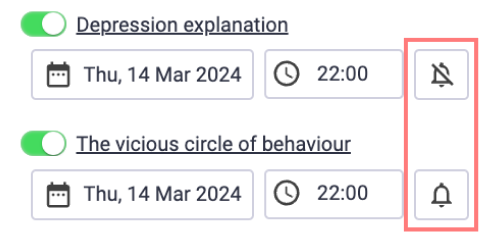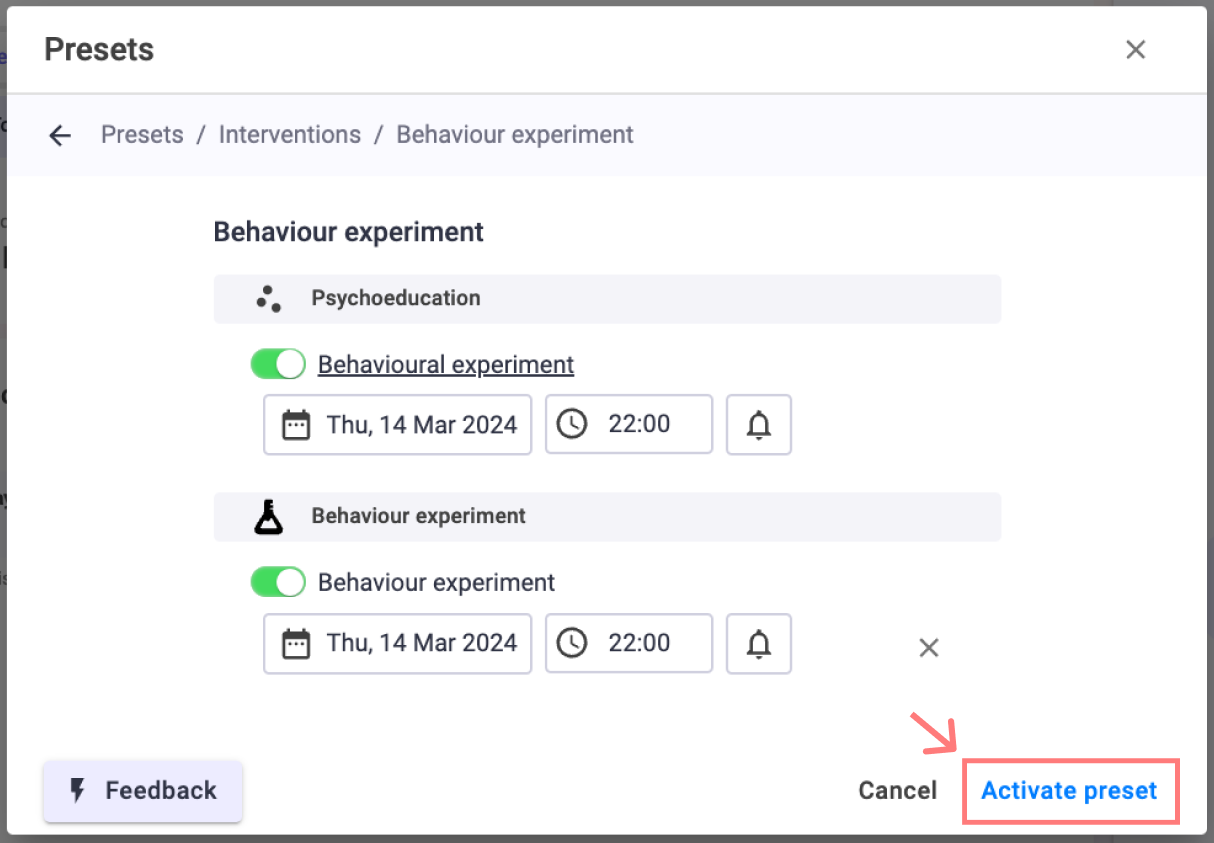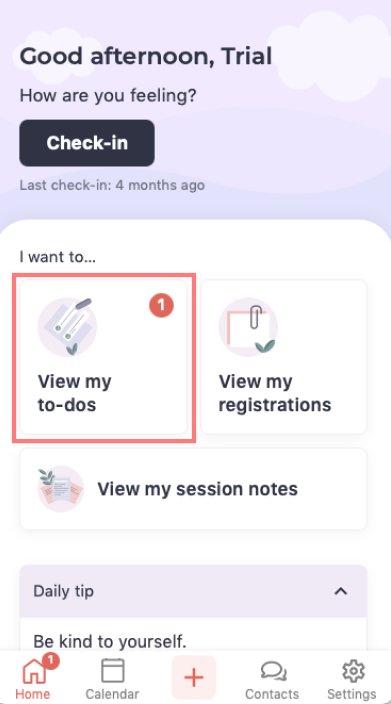Presets (flexible modules)
What is a preset?
Presets, also called flexible modules, are sets of tasks that you can activate for your clients. They include all available tools in the NiceDay portal, such as trackers, psycho-education, exercises and customised to-do's (tasks) for the client, to motivate and activate them to take action on their mental well-being, together with you as the practitioner.
Presets are intended to enable therapists to activate a set of tasks for the client with a single action, allowing you as a therapist to gain valuable data-driven insights from the client's registrations and implement appropriate interventions. By default, the selected module shows the tasks associated with the chosen topic according to the protocols. In addition, with some modules you will receive suggestions for trackers or education that may be suitable for the client, which you can activate yourself.
Preset example: relaxation

Activating a preset
Presets can be found in the Data page Toolbar

Presets are divided into 3 categories: tracking complaints, psychoeducation and interventions. Explore them to find the care path that is more suitable for your client at this moment, or use the search by to filter the content by the title of the presets.

Select a preset to see the list of tasks. You are able to:
- switch tasks on and off
- edit the due date
- add repetition to the tasks (thrice a day, twice a day, daily, weekly, weekdays or monthly)
- turn the notification for your client on or off

You can remove the to-dos of trackers. In this case, the tracker will be activated for the client without planning any to-dos.

Click on "Activate preset" to activate one.

Once active, you will find all the new tasks in your client's to-do list in the Intervention page.
ℹ️ At the moment it is not possible to deactivate a preset, to-dos need to be deleted one by one.
The client side
Your clients will see all the new tasks in their to-do list:

If the notification is enabled, clients will receive a reminder via the app to perform the task. This helps clients to register or take on a task at the agreed times. This way, the client is motivated and reminded to actively get started themselves. And as a therapist, you receive valuable data 📈 that helps you guide and treat your client, even outside the regular sessions!
